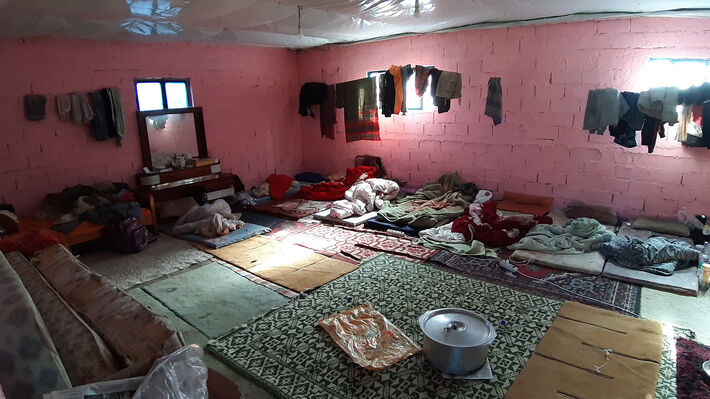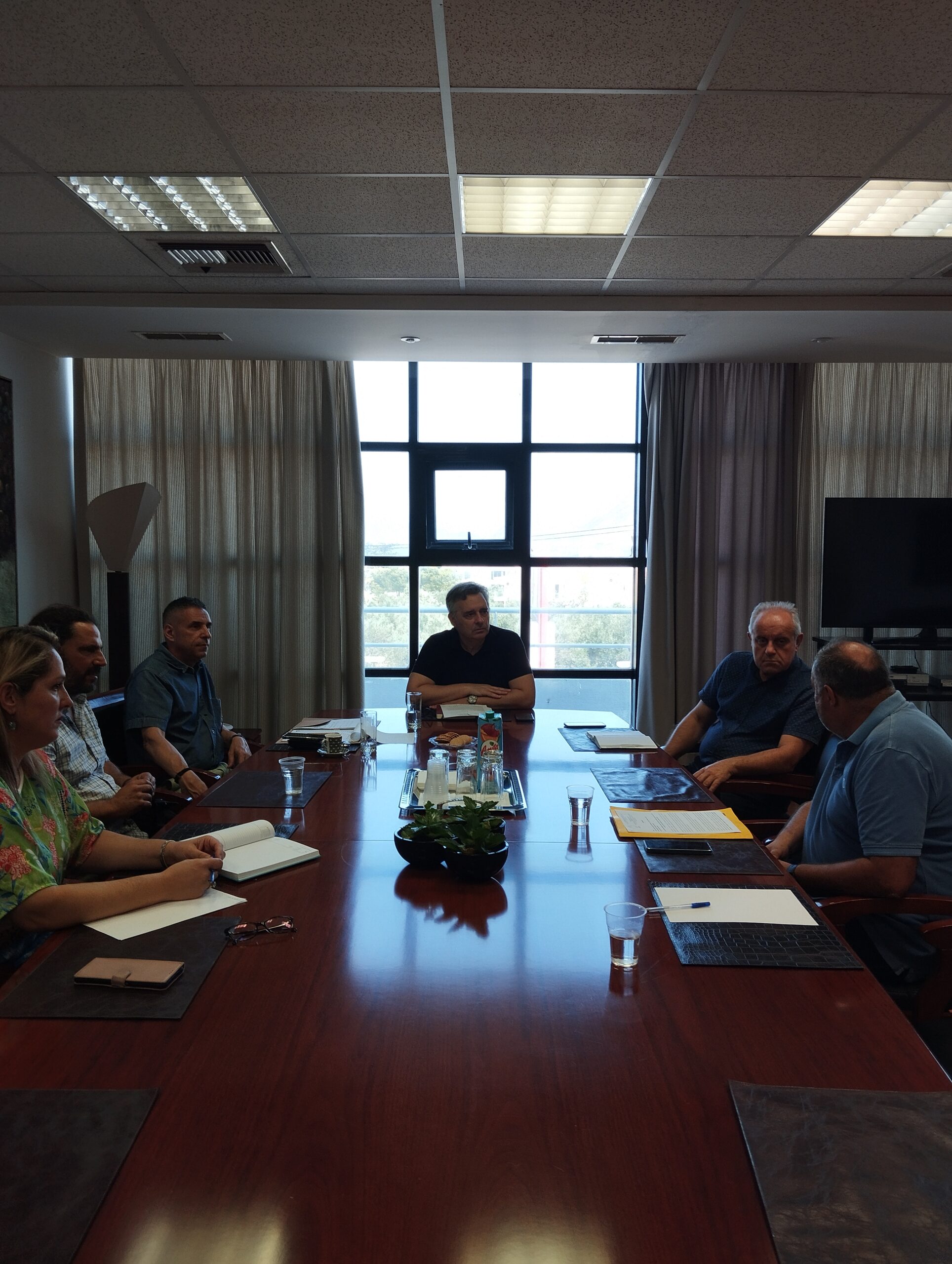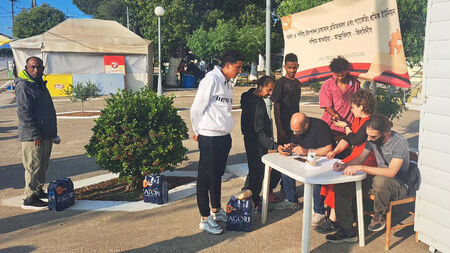Horrible Living Conditions for the Thousands of Migrant Farm Workers in the Strawberry Fields of Ilia
The governments may have changed over the years, but the conditions remain the same for migrant farm workers, causing anger and outrage: grueling work in the vast fields to harvest the “red gold” that brings substantial profits to the large landowners. Living in makeshift shelters without basic hygiene standards or healthcare. Migrant workers – victims of human trafficking networks, exploitative intermediaries, and state and employer terror.
These images have resurfaced after the fire last month that destroyed their makeshift homes, along with their belongings and valuable documents that allowed them to work “legally,” and in some cases, to travel back to their home countries.
These are shameful images that are perpetuated with the “blessings” of the governments of ND (New Democracy), PASOK, and SYRIZA over the years, with state support, to supply modern-day landlords with cheap labor.
While they may remind us of the “American South” of the previous century, they are directly taken from the “modern” immigration policies of the 21st century. These policies, endorsed by the EU and governments, are marketed as “flexible labor mobility frameworks,” referring to agreements for importing workers from so-called “third countries” under the guise of worker shortages.
At the same time, while the government and Minister M. Voridis announce arrests and deportations of migrants, the official “state-run human trafficking” operates through intergovernmental agreements for the delivery of cheap labor to agricultural businesses.
An agreement has been signed with Bangladesh and approved by ND, PASOK, and SYRIZA, as well as with India, Egypt, and other countries. Notably, SYRIZA had been more enthusiastic than anyone else, calling for even more flexibility for employers in “bringing in” workers from third countries, with Tsipras himself warning migrants that if they came to Greece, they “wouldn’t just sit around collecting benefits” but would go to the devastated countryside that needs farm workers.
The terms of the intergovernmental human trafficking agreements are inhumane, giving free rein to the wild exploitation, as they prohibit any possibility for migrant workers to establish rights, except for staying within specific time limits for work, based on seasonal needs.
There is no mention of collective rights, contracts, or any “commitments” or “obligations” from the employer, proving that these “flexible frameworks” are the most barbaric form of modern capitalist exploitation.
Therefore, the ground for the images of modern-day “serfs” has been laid by governments and capital’s political parties, by the EU itself and its “best practices.” That’s why, as “professional” as the government may seem in signing such agreements to quickly utilize “chunks of workers” for large landowners to meet production demands, it does not, and cannot, guarantee measures for the protection of workers’ lives.
And while the “damned of the earth” are welcomed as cheap workers with nonexistent rights, they are considered “illegal” and repressed when they try to escape from the bombs of imperialist war.
Against this nightmare of barbarism and exploitation, of destitution for the profits of a handful of large employers, the fighting initiative in Nea Manolada stands once again these days. Organized by the unions and labor centers, the power of solidarity, organization, and collective struggle shines, standing alongside the migrants for every right: from humane living conditions, access to food and water, to health and safety, and the provision of the necessary documents for legal status.
This joint struggle, in conflict with the horror of exploitation that has become “law,” shows the strength of the “people below” to confront the rotten state and the profit-driven system it serves and protects.




